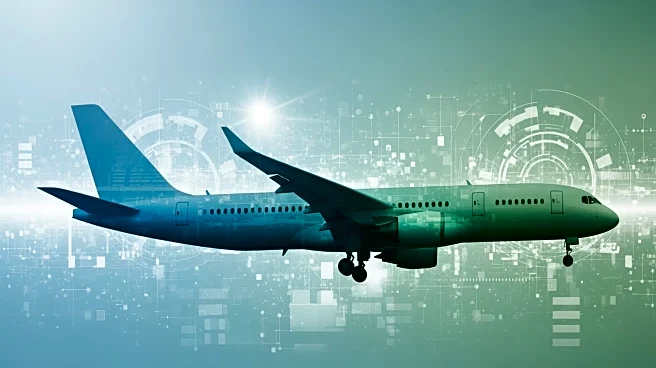What's Happening?
On October 23, 2025, Alaska Airlines experienced a significant IT outage that grounded all Alaska and Horizon Air flights nationwide from approximately 3:30 pm PT until late evening. The ground stop was
lifted by 11:30 pm local time, with operations resuming shortly after midnight. The outage, caused by a data center hardware failure, affected multiple key systems necessary for flight management. As a result, more than 229 flights were canceled, and hundreds more were delayed, with the total cancellations exceeding 250 by the following morning. The airline emphasized that safety was never compromised and clarified that the incident was not a cyberattack. This marks the second major IT crash for Alaska Airlines in 2025, following a similar outage in July.
Why It's Important?
The IT crash at Alaska Airlines highlights the vulnerability of airlines to technological failures, particularly those relying on aging IT systems. The disruption affected thousands of passengers, leading to long queues and stranded travelers at airports, notably at Seattle's Sea-Tac Airport. The incident underscores the need for airlines to invest in modern, resilient back-end systems to prevent future disruptions. Financially, the outage occurred as Alaska was concluding its third quarter, reporting $3.77 billion in revenue but lowering its 2025 profit forecast. The company's stock price fell by 2.2% in after-hours trading. The event serves as a wake-up call for the aviation industry to address its reliance on outdated technology infrastructure.
What's Next?
As operations resume, Alaska Airlines is expected to face ongoing delays as it repositions aircraft and crews. The Federal Aviation Administration and other airlines are coordinating to manage flight schedules. Passengers are advised to check flight statuses and allow extra time at airports. The incident may prompt Alaska Airlines and other carriers to accelerate investments in IT infrastructure to prevent similar occurrences. The airline's response, including a flexible rebooking policy and customer support efforts, aims to mitigate passenger dissatisfaction and maintain customer loyalty.
Beyond the Headlines
The repeated IT failures at Alaska Airlines raise broader concerns about the aviation industry's dependence on legacy systems. The incident could lead to increased regulatory scrutiny and pressure on airlines to upgrade their technological infrastructure. Additionally, the financial impact of such disruptions, including potential fines and compensation costs, highlights the economic risks associated with IT failures. The situation also reflects the broader challenges faced by industries reliant on complex software networks, where even non-malicious hardware faults can have significant operational consequences.










